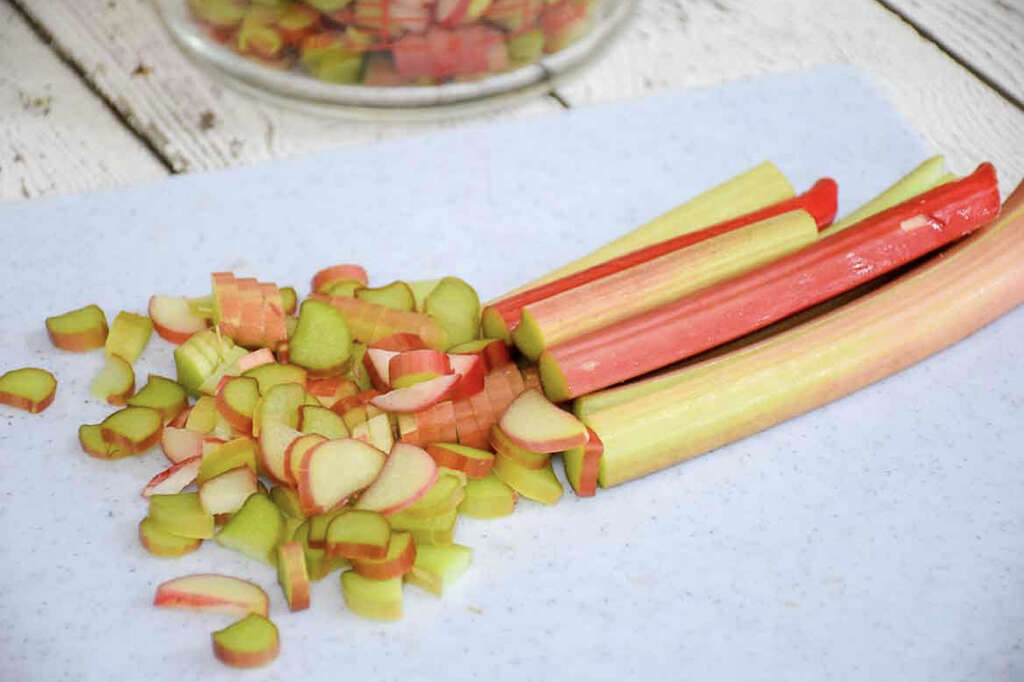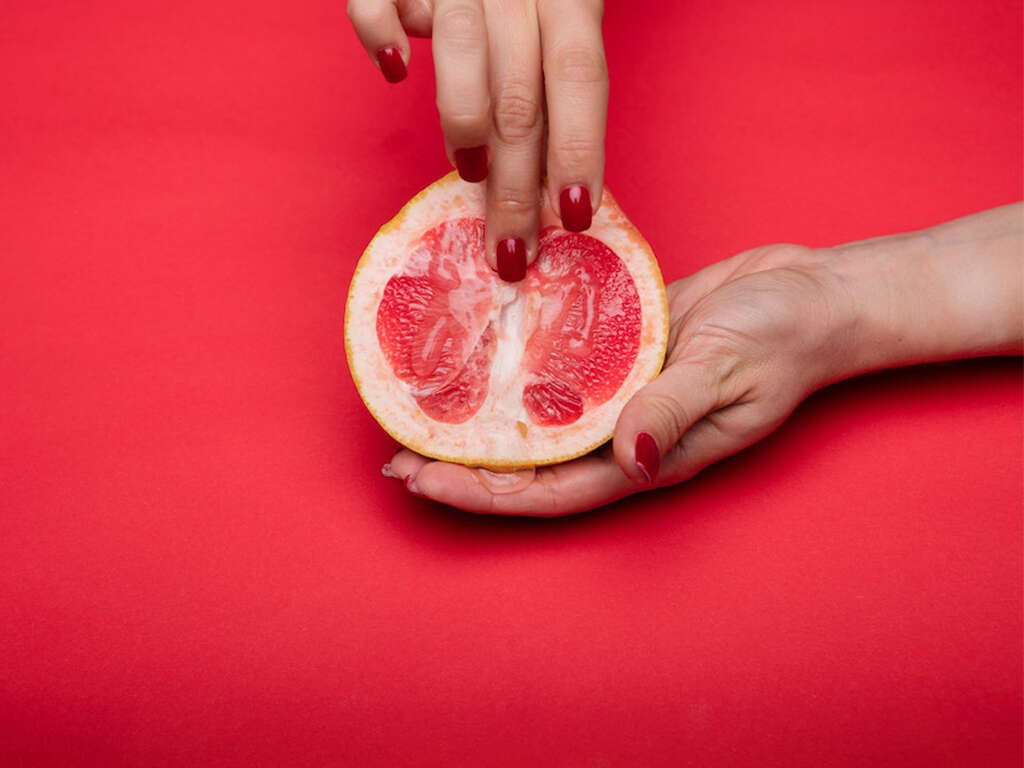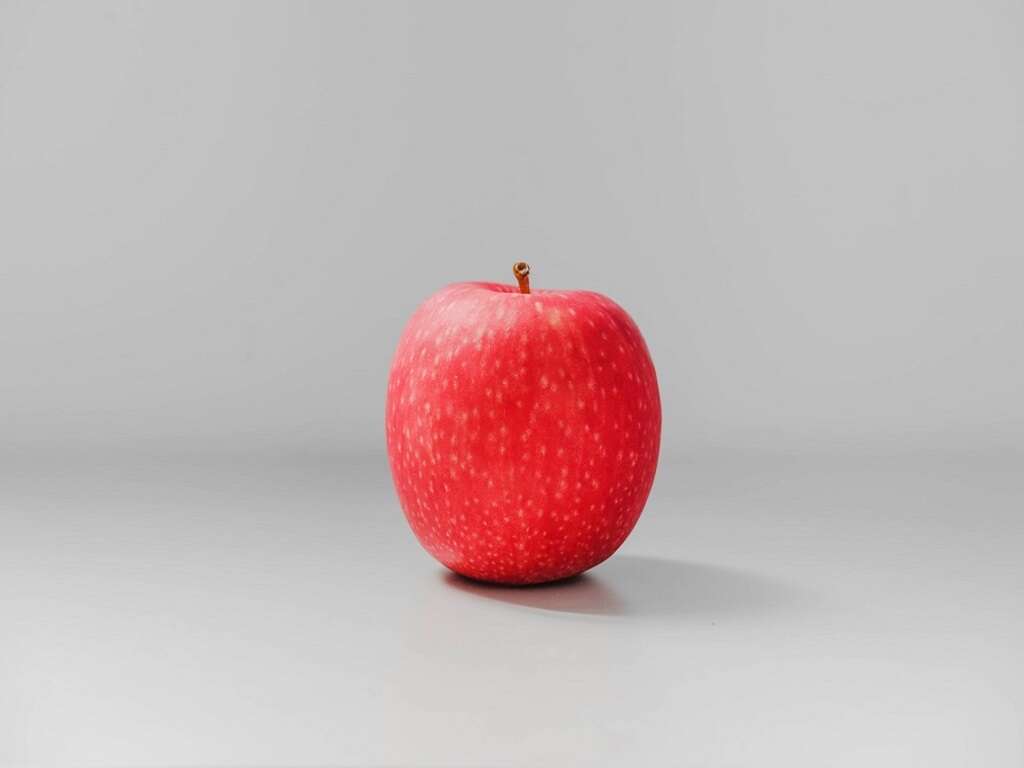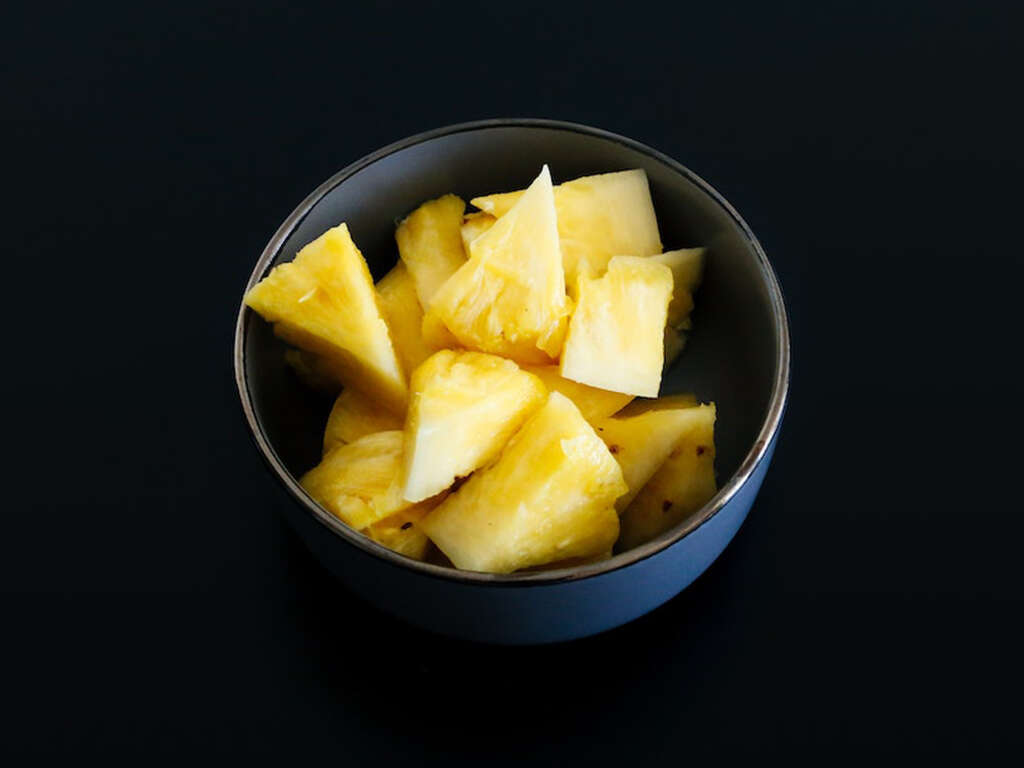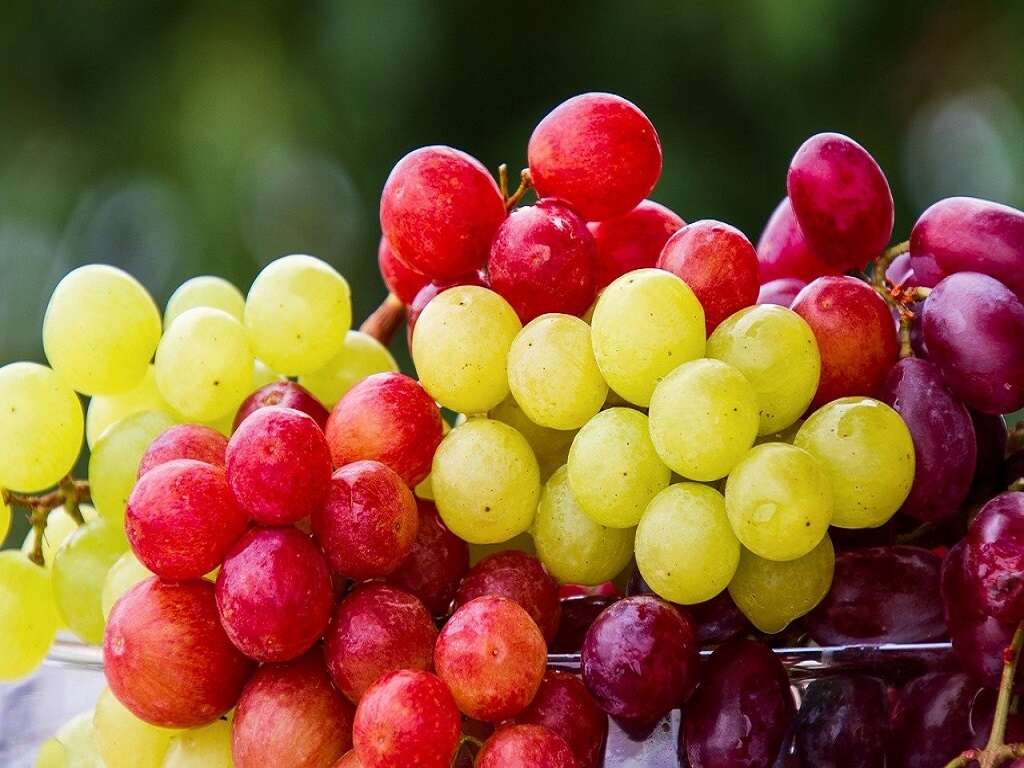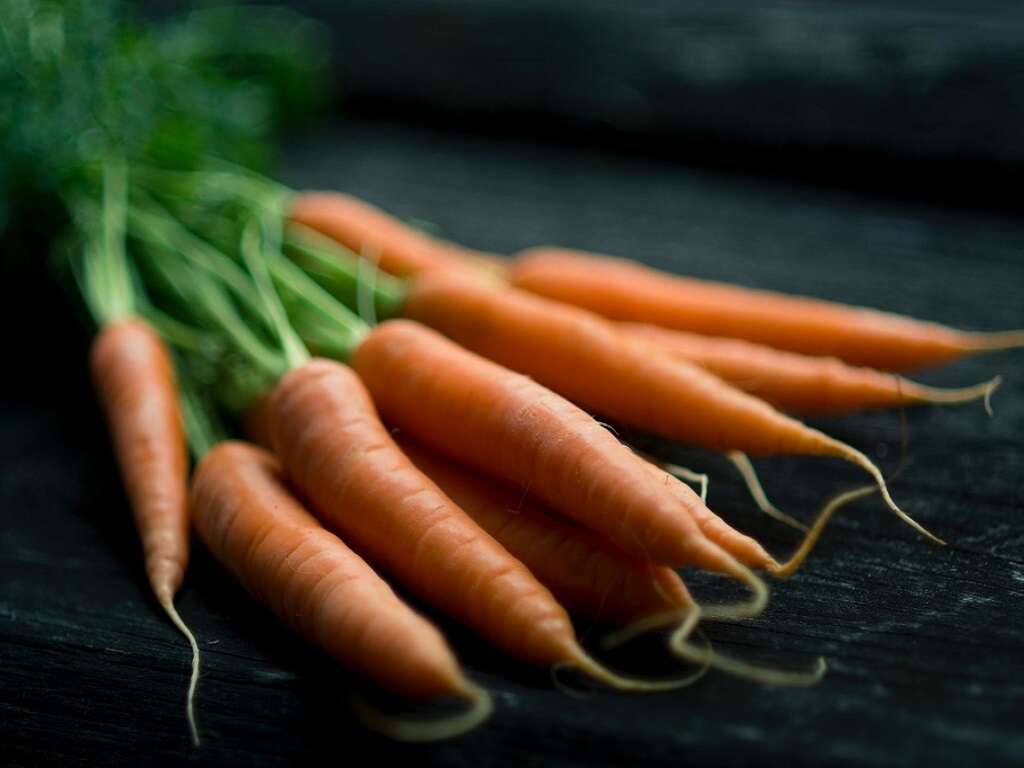10 Health Benefits of Rhubarb
While rhubarb is generally considered a vegetable in most parts of the world, it is considered a fruit in the United States. This is because of the sour and fruity taste of its stalks, which is the part that is commonly eaten. Rhubarb is believed to have originated from the Asian regions of Siberia, Tibet, Mongolia, the Himalayas, and parts of China. However, today, it is cultivated in many parts of the world.
Cultivated rhubarb mostly has red stalks; however, varieties with pink or green stalks are also cultivated. Rhubarb stalks, also called sticks, are usually eaten raw in desserts. They may also be cooked in a number of ways including stewing, in baked products, and in pies. Rhubarb is also used to make jams, wines, and beers.
Besides its use for food, rhubarb has been used medicinally for centuries. This article looks at 10 health benefits of rhubarb.
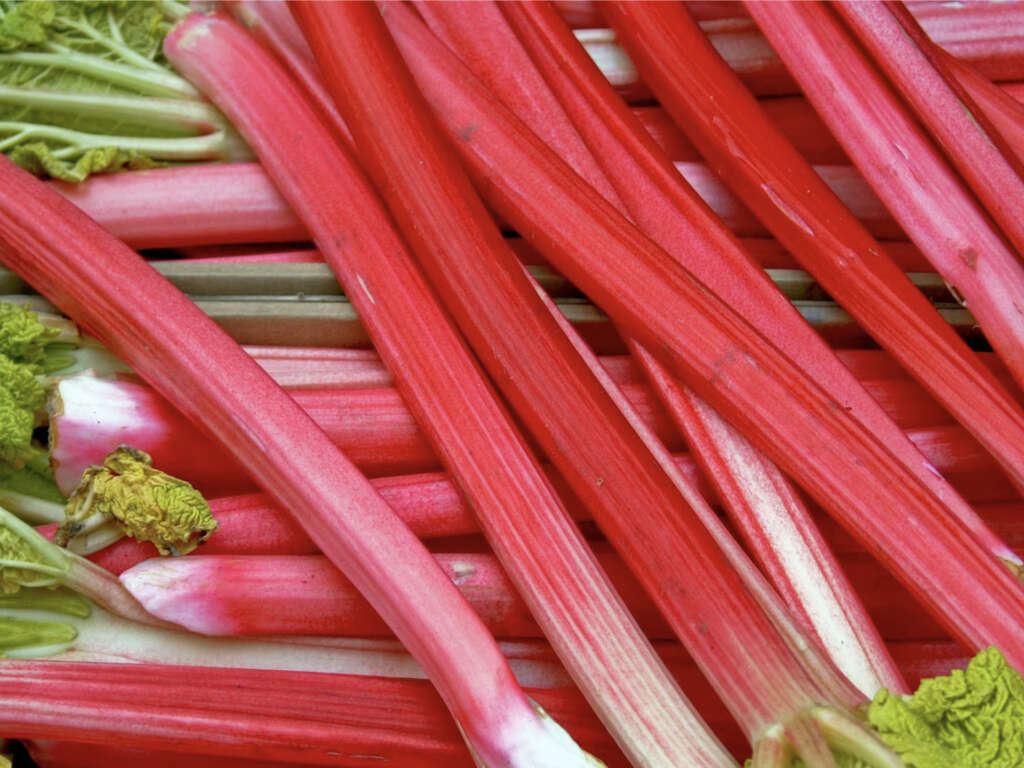
Rhubarb Benefit #1: Enhances Blood Circulation
Healthy blood circulation is essential for good overall health and well-being. It ensures that tissues and organs get enough oxygen, macronutrients, and micronutrients that are essential for energy production and physical and mental activity.
To improve and maintain good blood circulation, you need a regular intake of iron and copper. Iron is essential for the production of red blood cells and the oxygen-transporting compound called hemoglobin. Its deficiency leads to iron-deficiency anemia and the accompanying symptoms like general body weakness and shortness of breath. Note that healthy blood circulation leads to a healthy heart, a healthy brain, and a properly functioning body. Foods like rhubarb provide significant support toward achieving healthy blood circulation.
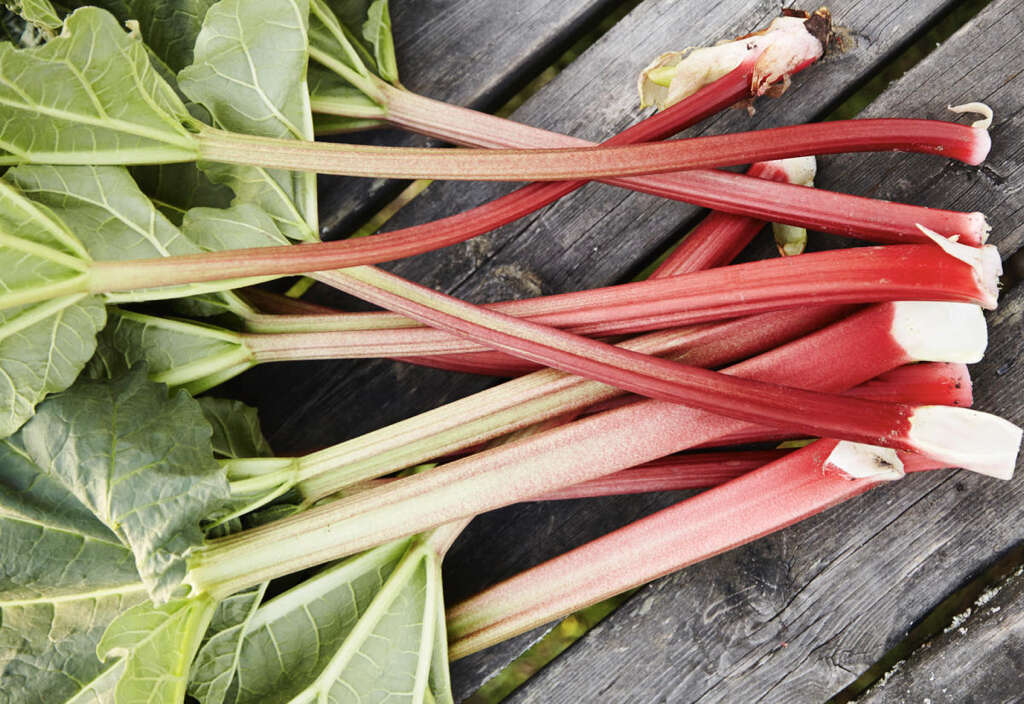
Rhubarb Benefit #2: Strengthens Bones and Teeth
You are probably surprised at the idea that regular consumption of rhubarb can make your bones stronger. But this is true. Your bones need various minerals and vitamins in order for them to provide the structural support necessary to bear the weight of your body. If some of these essential nutrients are lacking or are in low supply, the result can be pathological fractures and osteoporosis, among other diseases associated with weak bones, especially in the elderly.
Consuming vitamin K-rich foods helps to maintain healthy bones. Vitamin K is essential for bone growth and for fixing bone damage. It works together with minerals like calcium and vitamin D to achieve this. It is worth to note that vitamin K from natural sources such as rhubarb, as indeed other vitamins and minerals, is a better option than the synthetic alternatives.
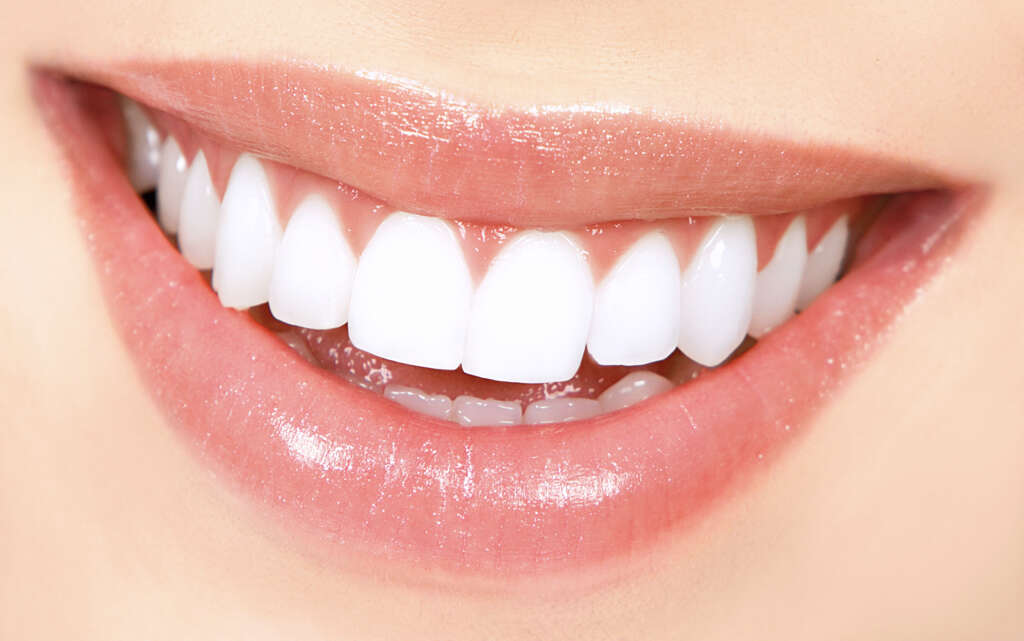
Rhubarb Benefit #3: Good for Alzheimer’s
Alzheimer’s disease is a common disease, especially in the elderly. But research has shown that together with other age-related diseases, Alzheimer’s can be prevented by consuming beneficial foods and living a physically active life. Alzheimer’s affects the quality of life of the affected person and those close to them.
Rhubarb is very rich in vitamin K besides other micronutrients and antioxidants, which can improve brain functions in a significant way. Vitamin K plays a vital role in the delivery of oxygen to brain cells. It also stimulates cognitive activity. Including rhubarb in your diet can, therefore, help support your brain health so that you retain good mental functions into old age.
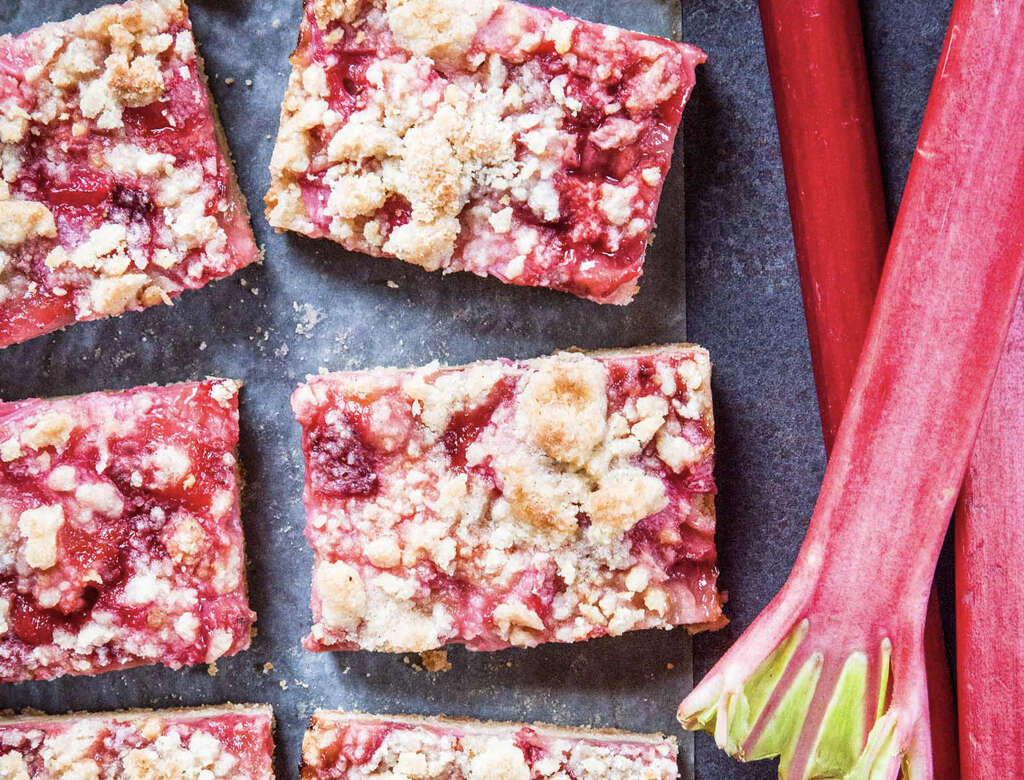
Rhubarb Benefit #4: Helps Control Blood Sugar Levels
Modern lifestyles lead to a significant rise in blood sugar levels most of the time. This is because most foods are refined and contain high amounts of refined sugars. These cause sustained blood sugar imbalances. Note that you should be aware of your blood glucose level by getting routinely tested to ensure that it remains within the healthy range. If a sudden spike in sugar level occurs, you should seek immediate medical assistance to get it under control. High sugar levels can cause damage to your blood vessels, which can lead to further medical problems including heart disease.
Many studies suggest that rhubarb stems or sticks contain compounds that help control sudden sugar spikes without any adverse effects on overall health. Diabetic patients can add rhubarb to their daily meals to maintain normal glucose levels.
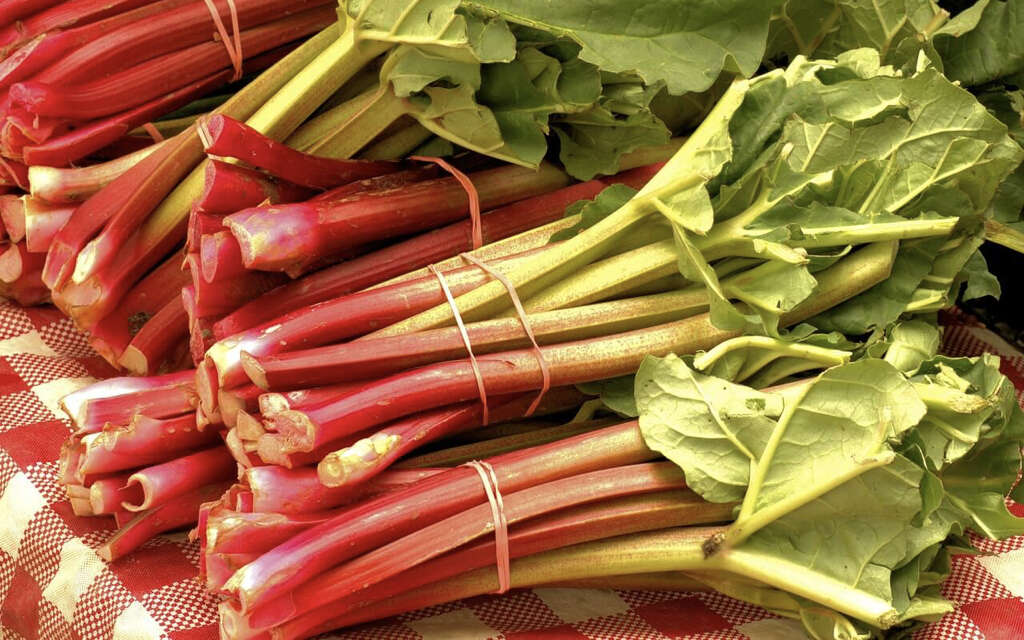
Rhubarb Benefit #5: Rhubarb Promotes Digestion
Digestion problems can lead to further health issues including nutrient deficiencies. Having good digestion is one of the key factors to enjoying an overall healthy life. This is why you need to eat foods that support your gastrointestinal functions. The dietary fibers found in rhubarb help to maintain a healthy digestive system. The nutrients and fibers will regulate your bowel movements so that waste is eliminated effectively and efficiently.
Also note that if you have constipation, it is a good idea to consume rhubarb to get rid of it. Rhubarb also aids in the prevention of other gut issues including serious diseases such as colorectal cancer.

Rhubarb Benefit #6: Keeps Your Kidneys Healthy
The kidneys are among the most vital organs in the body and their impairment can lead to all kinds of diseases because it becomes difficult to get rid of extra nutrients, waste, and water from the body. This can grossly affect overall health negatively, hence the need to keep the kidneys healthy.
Rhubarb is a powerful diuretic and it can play the role of maintaining properly functioning kidneys if it is consumed regularly. It helps your body to excrete various types of waste, toxins, excess minerals, and excess vitamins through increased urination. Also, according to some studies, rhubarb can help improve chronic renal failure.
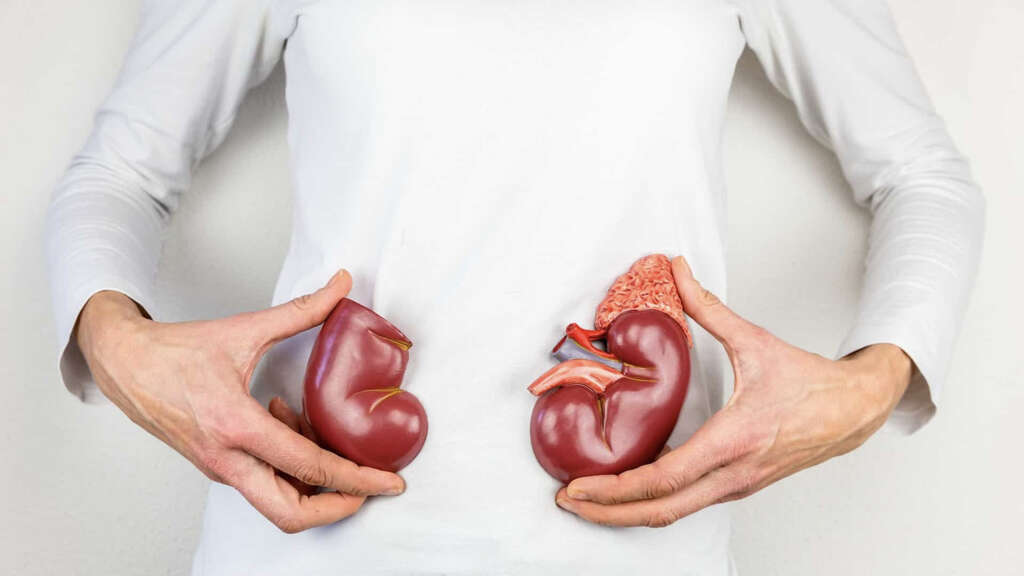
Rhubarb Benefit #7: Helps Fight Cancers
Free radicals are among the most dangerous chemicals in the body. They cause oxidative stress and chronic inflammation, which can lead to serious health problems including diseases like hypertension, arthritis, diabetes, and cancer. It is, therefore, important that free radicals are constantly neutralized to prevent their negative effects. This is why it is important to consume foods rich in vitamin A, vitamin C, and antioxidant phytochemicals.
When you consume foods like rhubarb, your body gets significant amounts of these micronutrients, which equip the body to fight against carcinogens and protect tissues and organs from oxidative stress.
Besides the vitamins, rhubarb contains beta-carotene, zeaxanthin, lutein, and other plant compounds that offer protection from mouth, lung, and other cancers.

Rhubarb Benefit #8: Prevents Cardiovascular Diseases
Rhubarb is a great food for people suffering from cardiovascular diseases. On the one hand, it is full of beneficial nutrients; on the other hand, it contains minimal amounts of fat and no cholesterol. Besides, rhubarb is rich in fiber, which is known to help lower cholesterol levels.
Rhubarb is also full of antioxidants that prevent oxidative stress and subsequently heart problems. Free radicals are reactive byproducts of biochemical processes in the body that are associated with many diseases including cardiovascular diseases, because of their ability to destroy blood vessels. Maintaining a healthy cardiovascular system is not easy in modern times where many foods are processed and unhealthy. This is why it is important to incorporate beneficial foods such as rhubarb into your diet to cleanse the body and improve your health status.
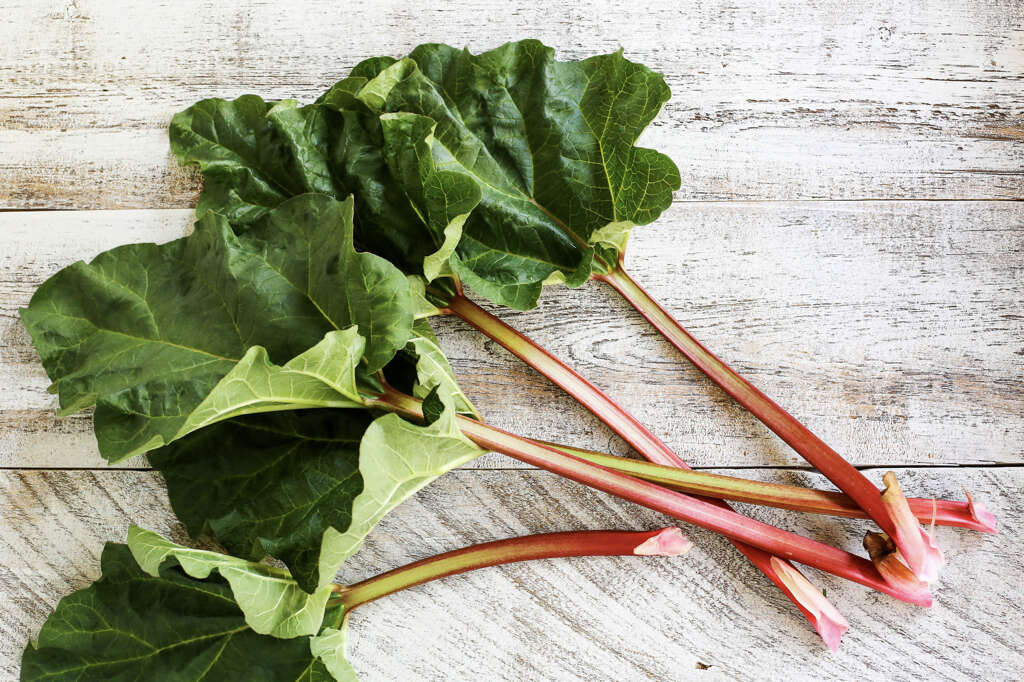
Rhubarb Benefit #9: Good for Weight Loss
Rhubarb is considered a great food for losing weight. One hundred grams of rhubarb contains around 21 calories and no fat. And irrespective of whether you want to consume it raw or cooked, your body will be replenished with lots of nutrients. These nutrients are essential for keeping your internal organs strong and active. Rhubarb is also rich in dietary fiber, which has various benefits in the body.
Fiber is especially important for people who want to lose weight. Consuming rhubarb decreases your appetite for hours and, because it contains compounds that boost your metabolism, your body burns more fat, which is critical to your weight loss journey.

Rhubarb Benefit #10: Prevents Premature Aging
Aging is a natural process that everyone ultimately has to contend with as the years pass. We get wrinkles, lines, gray hair, weak bones, and muscles. All these come as age catches up with us. However, there are many healthy practices that you can incorporate into your life to delay aging and prevent some of its aspects.
Consuming rhubarb provides your body with many essential micronutrients and antioxidants that can prevent premature aging. In addition to premature aging, relatively young people complain about chronic body pains and aches as well as concentration problems. Adding rhubarb to your diet helps keep your body and mind healthy and active well into old age.
